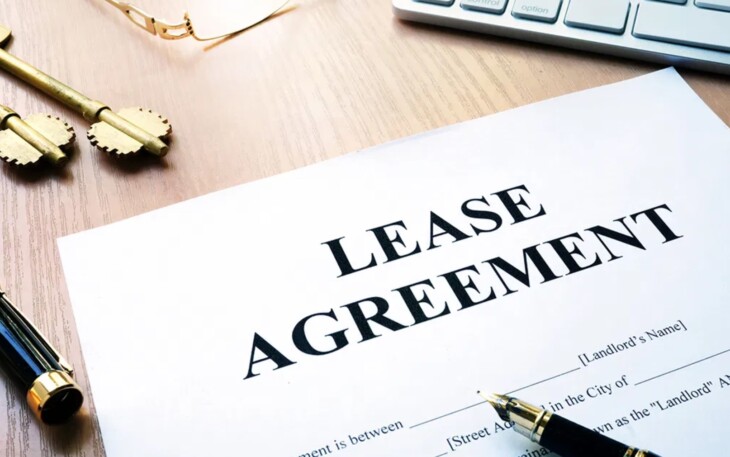If you’ve been counting on your real estate investments to support your retirement, your retirement might be at risk. The COVID-19 pandemic has forced millions of people into unemployment, which has significantly disrupted investment income.
If you’re not generating regular rental income and can’t pay your mortgage, you may have to sell your properties to avoid foreclosure. However, that’s not your only option. Here are four tips you can use to hang onto your property investments to ensure you receive income for your retirement.

Source: NewRetirement
Contents
1. Hire a property management company
It’s tough managing properties by yourself, especially during these uncertain and chaotic times. Without a team of professionals, you’re more likely to make a major mistake like pursuing an unlawful eviction or not writing a strong enough lease.
Hiring a property management company will give you peace of mind. You’ll have experienced property managers taking care of your tenants and handling any issues that may arise, including repairs, maintenance, required inspections, and evictions.
Green Residential is one of the best property management companies in the Katy area. To see what they offer, visit their website.

Source: The Verandah Gardens
A property management company will know what’s legal
Abiding by all laws is critical during these times, especially when it comes to evictions. You might see a large number of investors giving tenants a notice to vacate and/or filing eviction lawsuits in your area, but that doesn’t mean it’s legal.
In Katy, Texas, for example, landlords have been evicting non-paying tenants since the pandemic began, even during the moratorium. Many of these landlords broke the law. Unfortunately, some tenants don’t know their rights, and they don’t know they can fight the lawsuit.
The federal eviction moratorium is in place through June 30, 2024. The moratorium prohibits evicting a tenant for non-payment of rent if that tenant lost their income because of the coronavirus pandemic. That leaves only a handful of reasons you can evict a tenant at this time. For example, you can still evict a tenant for creating a nuisance or violating the lease agreement in ways other than not paying rent.
It’s not worth risking getting sued by a tenant for violating eviction laws. The moratorium could be extended again and you might evict a tenant not knowing about the extension. When you have a property management company taking care of your tenants, they’ll be on top of the ever-changing moratorium regulations.

Source: LendingHome
2. Consult with a lawyer
The best thing you can do to protect your investment property income is to consult with a lawyer. Depending on your situation, you may need some legal advice. For example, if you’re behind on your mortgage, you may not qualify for deferment or the newly proposed mortgage moratorium.
A lawyer will know what’s legal and what can get you in trouble
You may have heard that a Texas federal judge ruled the eviction moratorium unconstitutional because it infringes on a property owner’s rights. Similar rulings have been made in Ohio and Tennessee.
This is true; however, these rulings don’t lift the moratorium. In fact, the Texas judge didn’t issue an injunction to stop the moratorium. The judge advised the CDC to rescind the moratorium and expected them to do what’s right.
The CDC has not responded to the ruling, nor have they lifted the moratorium. So, despite a federal judge ruling that the moratorium is unconstitutional, you still need to abide by the rules of the moratorium, which are currently in effect until June 30, 2024.
COVID-19 is changing laws frequently. Consult with a lawyer before making any moves.

Source: Mynd Property Management
3. Make lease adjustments for your tenants
If your tenants can’t pay rent because they don’t have any income, there’s nothing you can do about the situation. However, if your tenants aren’t paying rent because they had their pay cut or they have a new job, but it pays less, you might be able to get partial rent payments.
Consider making lease adjustments for your tenants if that’s what it will take to generate rental income. For example, say your tenant is now working part-time and can only afford to pay 60% of the rent. They’ve been holding back all of the rent because they don’t think you’ll accept a partial payment. Work out a deal with your tenants to reduce their monthly rent to whatever they can afford to pay. Make the new, lower amount their official amount of rent due and write up a new contract.
Since you can’t evict anyone, if you can get 50 to 60% of your monthly rental income from a renter you already know is reliable, it’s worth rewriting your lease.

Source: tenants
4. Save at least 10% of your income even if your bills are covered
If your monthly expenses are covered by your rental income, make sure to continue saving at least 10% of your income to add to your retirement fund. You may need that money to cover repairs or other expenses for your properties in the future. If you don’t have funds available to cover repairs, your tenants could potentially sue you for not maintaining the property. If you get sued, you’ll end up wasting more money and you will probably lose your case and have to pay your tenant a large sum for damages.
Although many people save between 5-10% of their income for retirement, surveys show that most American’s don’t have enough money to cover 6 months of expenses. According to data published by Bigger Pockets, the average retirement account holds just around $100,000. That’s not much. However, those who have invested in real estate are doing better than those who have not.

Source: The Balance
If you can’t make your current mortgage – sell and invest in a smaller property
Real estate is the best way to secure a long-term source of income for your retirement.
You don’t want to be without an income-generating property. However, if you can’t make your current mortgage payments, it’s better to sell now and buy something smaller with payments you can afford.
If you need to, sell now and invest in a smaller property. Aim for an area with recession-proof jobs to ensure that you’ll be able to rent the property. Don’t be afraid to cut your losses, but also reinvest to preserve your retirement.
